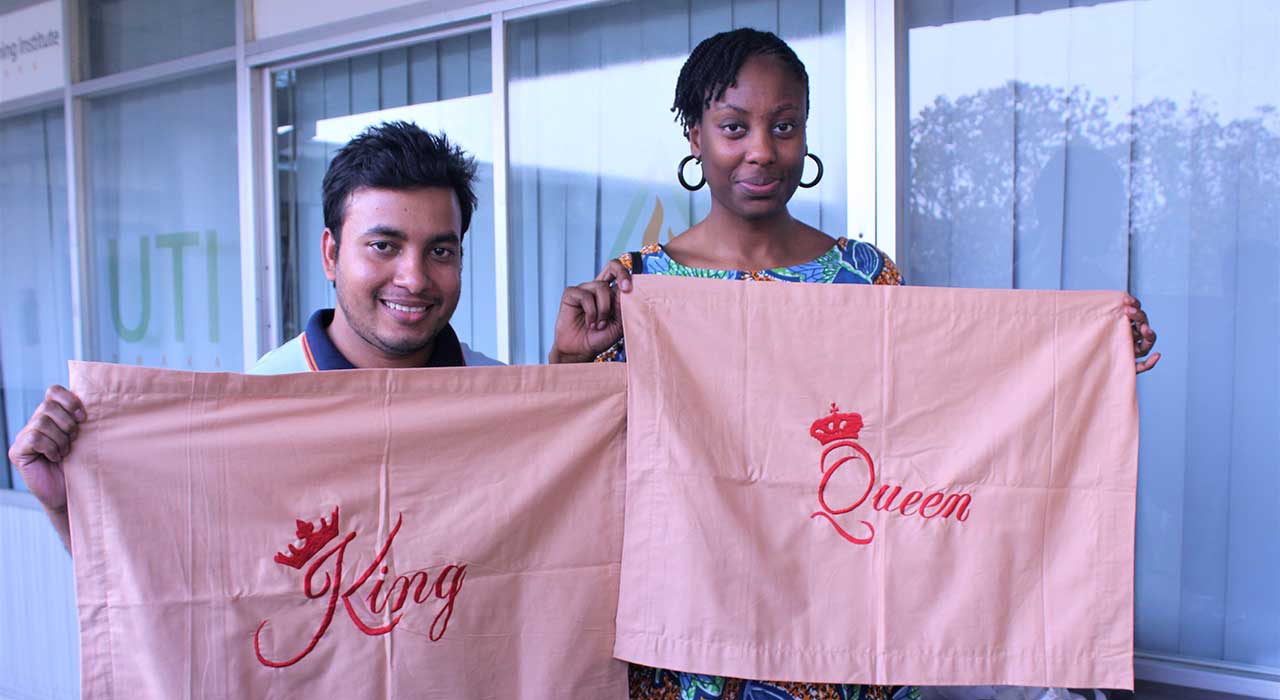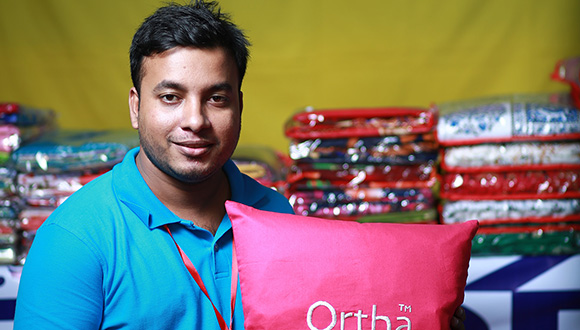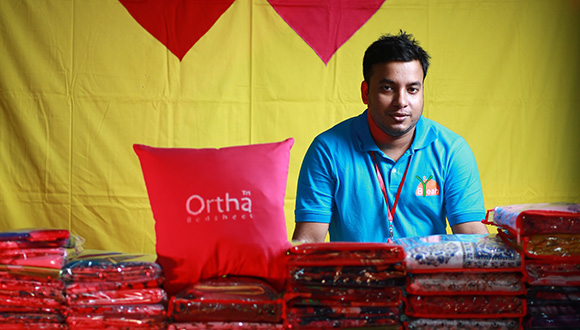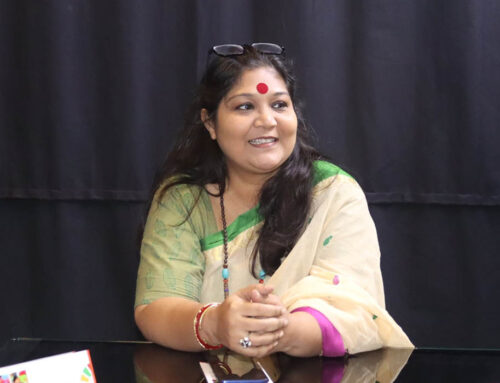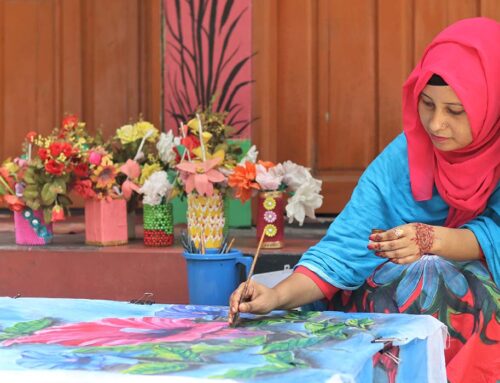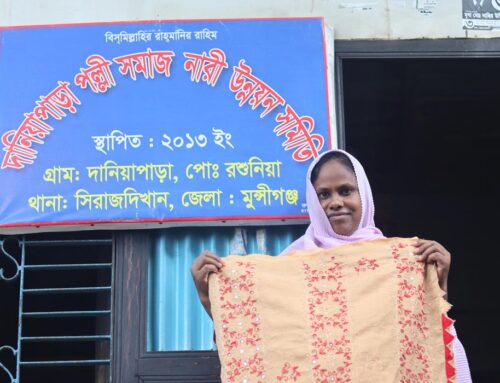Nitai Sarkar Partho is an energetic, confident young man. He was always a business enthusiast from early childhood. He completed his BBA and MBA from Eastern University Bangladesh. After completing his postgrad, he worked for two years in an e-commerce company for experience in the e-commerce industry.
In December 2015, he started his business ‘Ortha’. He employed rural women to produce a variety of bed sheets, pillow covers and home decor items. He prepared all his business documents, listing ‘Ortha’ as a Member of an Association of an Online Platform to manage businesses professionally. Via e-commerce, he wants to deliver Ortha’s bed sheets all over Bangladesh.
Business Training
When Partho joined BYEAH in late 2017, he had many dreams but lacked proper planning and guidance. While training was ongoing at BYEAH, he decided to set up a showroom and a factory. BYEAH boosted his courage and mentality to take on higher risks. He also got a wide range of ideas about networking and marketing. He is now expanding his business of bed sheets adding comforters, curtains, and various home decor products along with it. Partho not only sells his products online and in showrooms, but he is also participating in various fairs for marketing, such as the SME fair, craft fair, and BYEAH-organized entrepreneur fair. Partho now owns a showroom and a factory in Mirpur 1.
Mentor’s Guidance
After training, he got matched to a mentor. At the suggestion of his mentor, he worked tirelessly to grow his business. Partho is communicating regularly with his mentor Md. Sajjad Hossein. He received various business problem solutions, marketing policies and instructions from his mentor. The BYEAH mentoring process seems to him to be an optimized entrepreneurial factory.
His initial capital with which he started his business was BDT 60,000, and now his capital is BDT 1,500,000. Currently, there are 8 permanent staff and 8 temporary staff working in the establishment. Of them, 4 are women, and 4 are men.
“Young people of Bangladesh today have various problems because they are unemployed, but I think the only way to solve this problem is through entrepreneurship development,” he said, “which will contribute to the economic development of society and the country.”

